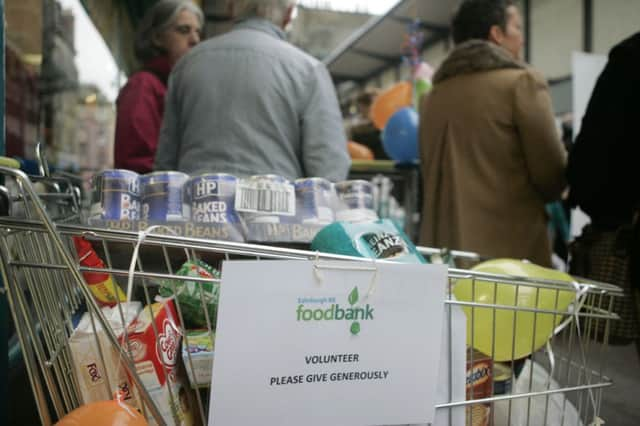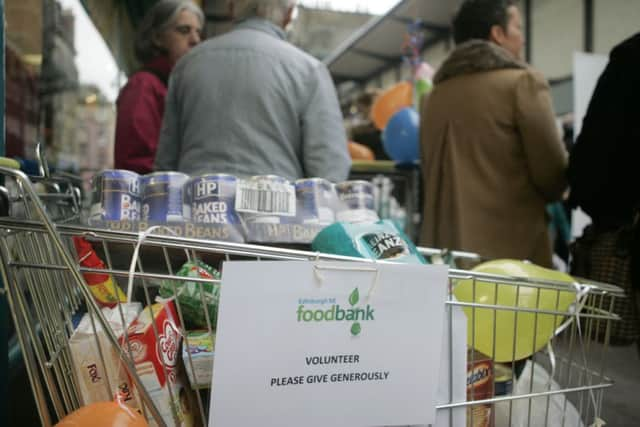Food-bank families ‘make most of economic choices’


Neil Couling, work services director at the Department for Work and Pensions, also told Holyrood’s welfare reform committee yesterday that Jobcentre staff received “thank you” notes from people facing benefit sanctions.
Claimants can have their jobseeker’s allowance suspended if they have failed to do enough to find work, turn down jobs offered to them or fail to turn up to appointments, after a tougher sanctions regime was introduced in October 2012.
Advertisement
Hide AdAdvertisement
Hide AdClaims that these new sanctions and other changes to welfare are fuelling demand for food banks was rejected by Mr Couling.


“My view, very clearly, is that this is a supply-led growth going on, and it will continue to grow over the years ahead, whatever the path of welfare policies are, because we live in a society where there are poor people and rich people, and people will maximise their economic choices. That’s just how economies work,” he said.
Mr Couling also claimed that jobcentre staff had been getting “thank you” notes from grateful recipients of welfare reforms.
But the claims were branded “utter nonsense” by angry MSPs yesterday.
The Trussell Trust charity said its food banks helped more than 56,000 people in Scotland between April last year and February – up from 14,318 the previous year.
Committee stand-in convenor Jamie Hepburn said he was “unconvinced” by the civil servant’s claims.
Nationalist MSP Kevin Stewart added: “That is complete and utter nonsense. I would suggest that you go and speak to folk in food banks as I have done – the workers there, the volunteers there and those folks who are presenting themselves who are facing major difficulties in their lives.”
A report published by the Scottish Government in December found that welfare reform was the main driver of increased demand for charity food parcels.
Advertisement
Hide AdAdvertisement
Hide AdDefending the use of sanctions to cut benefits, Mr Couling said: “You are seeing employment rising in Scotland, you are seeing unemployment falling, you are seeing the number of people on workless benefits falling as well.
“We think that it is the policy mix, the operational delivery on the ground, our people in Jobcentres who are doing a fantastic job day in day out, who are achieving these positive outcomes for Scotland.
“My experience is that many benefit recipients welcome the jolt that the sanctions can give to them.”
Asked by Mr Hepburn if Jobcentres were being inundated with thank you cards, Mr Couling said: “Yes, that is not unremarkable.”
The committee heard earlier from charities and councils who said there was a clear link between benefit changes and increased use of food banks.
Dr John Ip, of the British Medical Association, said: “As we all know, food banks are increasing their services and we feel that it’s demand-led rather than supply-led.”
Patients often seek out NHS support because of the stress of welfare sanctions and reliance on food banks, he said.
“That’s having a significant impact on GP workload at a time when workload pressures are quite extreme anyway,” he added.
“My experience – and certainly the experience of my colleagues – is that welfare reform, and the way it’s being carried out, is having a significant impact.”